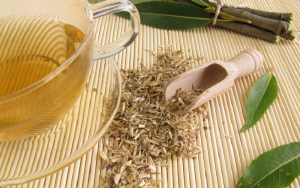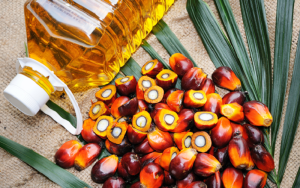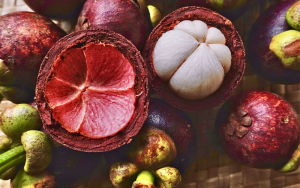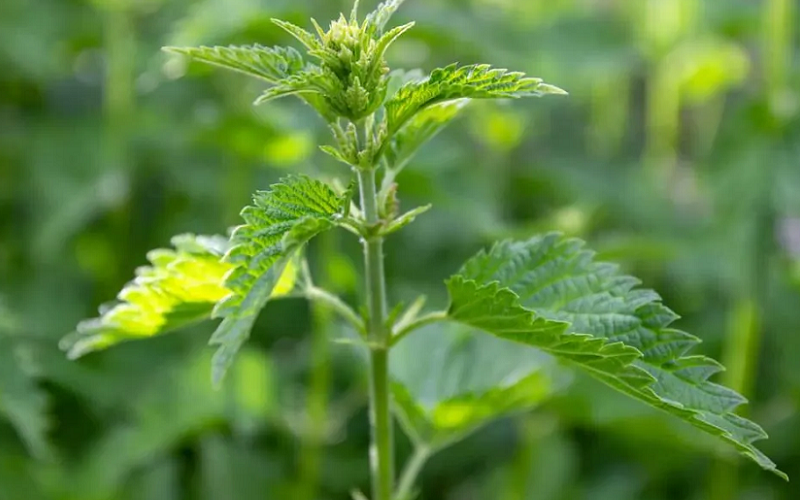
Are you tired of relying on antihistamines for allergy relief, only to be left with side effects and limited success? Welcome to a world beyond these traditional treatments; a world where natural remedies reign supreme. Stinging nettle extract is one such remedy. While the idea of using a plant renowned for its skin-irritating hairs to combat allergies may sound paradoxical, the health benefits of this natural powerhouse extend far beyond what you might expect.
Contents
Introduction to Allergies and Antihistamines
Understanding the complex world of allergies and the common treatments for them, such as antihistamines, is crucial before we dive into the benefits of stinging nettle extract.
Brief Overview of Allergies
An allergy is essentially an overreaction of the immune system to substances that are usually harmless for most people. These substances, known as allergens, can include pollen, dust mites, pet dander, certain foods, and more. The immune system mistakenly recognizes these allergens as threats and launches an inflammatory response to combat them. This response can result in a variety of symptoms, from mild annoyances like sneezing and itching, to severe and potentially life-threatening reactions such as anaphylaxis.
Explanation of the Body’s Reaction to Allergens
When an allergen enters the body, it triggers the immune system to produce immunoglobulin E (IgE) antibodies. These antibodies bind to cells known as mast cells, which are abundant in tissues that are prone to exposure to allergens, such as the skin, lungs, and gastrointestinal tract.
When the allergen encounters these IgE-loaded mast cells, it causes them to release a variety of substances, one of which is histamine. Histamine, in turn, is what causes many of the classic symptoms of an allergic reaction, such as itching, sneezing, and inflammation.
Introduction to Antihistamines: Current Go-To Solution for Allergies
Antihistamines, as their name implies, work against histamine. They do this by binding to the histamine receptors on cells, effectively blocking histamine from triggering an allergic response. This makes antihistamines a commonly used treatment for allergies. Over-the-counter options like Benadryl, Zyrtec, and Claritin, as well as prescription medications, are all examples of antihistamines that many people rely on to manage their allergy symptoms.
Limitations and Side Effects of Antihistamines
Despite their widespread use, antihistamines are not without their drawbacks. They can cause a range of side effects, such as drowsiness, dizziness, nausea, and dry mouth. Additionally, they may not be fully effective for everyone, and their efficacy can diminish with prolonged use. They also do nothing to address the root cause of the allergic reaction; they merely mitigate the symptoms.
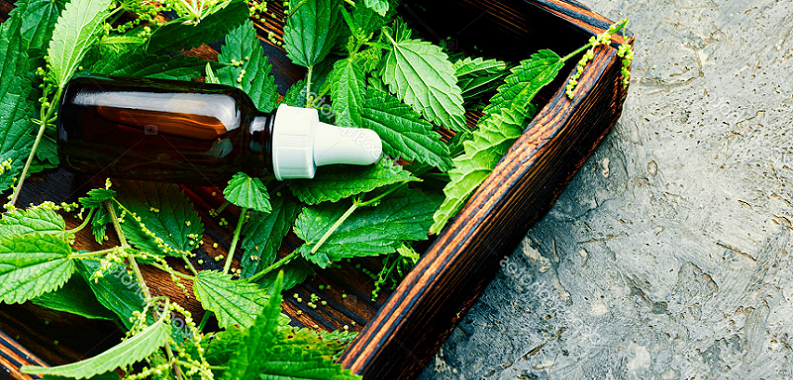
Introduction to Stinging Nettle Extract
After understanding allergies and antihistamines, we can now enter the intriguing world of stinging nettle extract. This plant extract has been used for centuries, owing to its multitude of health benefits, and recent research suggests it may offer significant relief for allergy sufferers.
Historical Use of Stinging Nettle
Stinging nettle, scientifically known as Urtica dioica, is a plant species renowned for its stinging hairs that release irritating chemicals upon contact with skin. This might not sound particularly appealing, but once processed and prepared correctly, stinging nettle has been used as a medicinal herb for centuries.
It dates back to ancient times when it was utilized for its anti-inflammatory and diuretic properties. It was also used to treat a range of conditions, including joint pain, skin problems, and even as a remedy for hay fever—an allergic reaction to pollen.
Introduction to Nettle Extract as a Health Supplement
In the modern era, stinging nettle has gained traction as a health supplement. The extract derived from its leaves is packed with a myriad of beneficial compounds, including vitamins, minerals, flavonoids, and plant sterols, which collectively contribute to its health-promoting properties. It’s now available in various forms such as capsules, teas, tinctures, and even creams, making it a versatile supplement that can be incorporated into a health regimen in several ways.
Extraction Process: Turning Stinging Nettle into a Supplement
The process of turning stinging nettle into a supplement involves careful harvesting and extraction techniques to ensure safety and potency. The leaves are typically harvested from mature plants and then either dried for use in teas or capsules or subjected to a solvent extraction process to create tinctures. The stinging hairs are neutralized during these processes, making the end product safe for consumption or topical application.
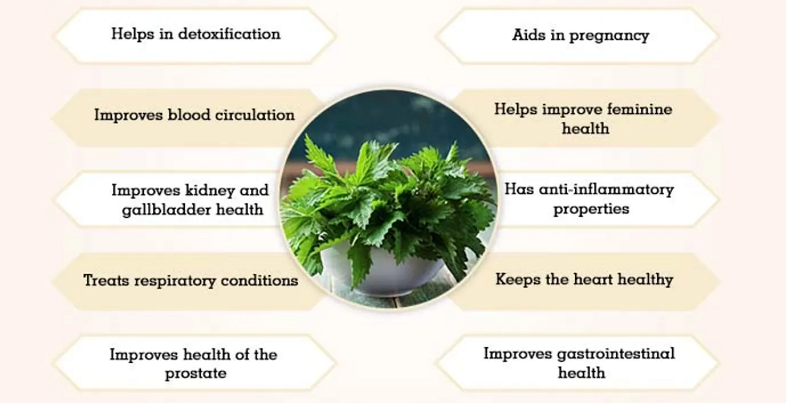
The Science behind Stinging Nettle Extract for Allergies
To truly appreciate the potential of stinging nettle extract for allergy relief, it’s vital to understand the science underpinning its effects on our bodies.
Detailed Look at the Active Compounds in Stinging Nettle
Stinging nettle is rich in various bioactive compounds that contribute to its health benefits. These include flavonoids, which are antioxidants known for their anti-inflammatory properties; vitamins A and C, which support a healthy immune system; and minerals like iron and potassium. Perhaps most importantly for allergy sufferers, stinging nettle contains compounds that can inhibit the body’s production of prostaglandins and other inflammatory substances.
Understanding How Stinging Nettle Affects the Immune Response
When an allergen enters the body, it triggers a series of immune responses, one of which involves the release of inflammatory substances. Stinging nettle’s active compounds can interfere with this process. Research suggests that stinging nettle extract can inhibit the release of inflammatory substances from mast cells, the very cells that trigger allergy symptoms when they interact with allergens. Additionally, stinging nettle may also inhibit the production of prostaglandins, which play a role in inflammation and pain.
Presenting Research Supporting Stinging Nettle’s Anti-Allergy Properties
Several studies have supported the use of stinging nettle for allergy relief. A study published in the journal “Planta Medica” found that stinging nettle extract can inhibit several key inflammatory events that cause the symptoms of hay fever. Another study published in “Phytotherapy Research” found that stinging nettle extract could reduce the amount of histamine in the body, potentially offering relief from allergy symptoms.
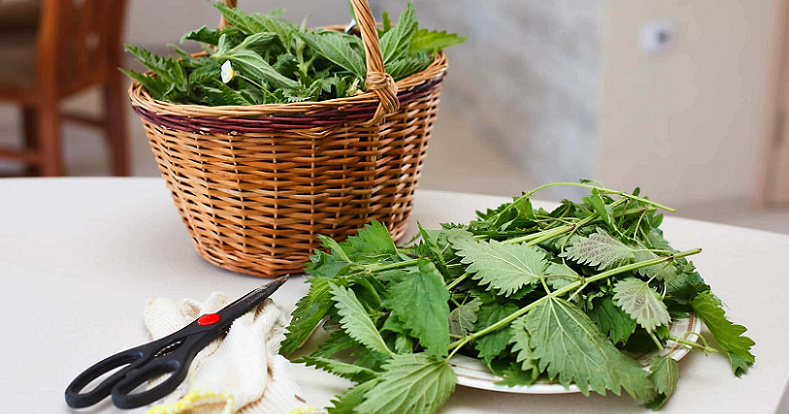
Stinging Nettle Extract Vs. Antihistamines: A Comparative Analysis
Given the potential of stinging nettle extract for allergy relief, how does it stack up against the common go-to solution—antihistamines? To truly appreciate the merits of each, it’s important to perform a comparative analysis, looking at effectiveness, side effects, and overall health benefits.
Effectiveness in Alleviating Allergy Symptoms: Nettle Extract and Antihistamines
Both stinging nettle extract and antihistamines have demonstrated effectiveness in alleviating allergy symptoms. Antihistamines block histamine, a key player in allergic reactions, from binding to its receptors, thereby reducing symptoms.
Stinging nettle, on the other hand, inhibits the release of histamine and other inflammatory substances, which could make it equally, if not more, effective in addressing the root causes of allergic reactions. More research is needed to definitively compare their effectiveness, but preliminary studies suggest stinging nettle holds promise.
Side Effects: Nettle Extract Vs. Antihistamines
While both stinging nettle extract and antihistamines can relieve allergy symptoms, their side effects vary significantly. Antihistamines are known to cause drowsiness, dizziness, nausea, and dry mouth, among other symptoms. On the other hand, stinging nettle extract has a far more benign side-effect profile.
When used correctly, it typically has minimal side effects, which may include mild stomach upset or skin rash in some individuals. It’s also worth noting that unlike many antihistamines, stinging nettle extract does not cause drowsiness, making it a safer option for individuals who need to maintain alertness during the day.
Overall Health Benefits: Going Beyond Allergy Relief
While both stinging nettle extract and antihistamines can provide allergy relief, stinging nettle offers additional health benefits. The plant is rich in vitamins and minerals, and has been used traditionally to treat a variety of conditions, including arthritis, urinary issues, and skin problems. Its antioxidant properties also contribute to overall health and well-being. Antihistamines, in contrast, serve a singular purpose—blocking histamine to reduce allergy symptoms.
How to Use Stinging Nettle Extract for Allergies
Given the potential benefits of stinging nettle extract, you might be wondering how to incorporate it into your allergy management routine. Here we explore the different forms of stinging nettle extract, dosage guidelines, and best practices for combining it with other treatments.
Different Forms of Stinging Nettle Extract
Stinging nettle extract is available in a variety of forms to suit different needs and preferences. Capsules and tablets offer a convenient and precise way to incorporate stinging nettle into your daily regimen. Teas made from dried nettle leaves can provide a soothing and therapeutic way to enjoy the benefits of stinging nettle, especially for those who enjoy a warm beverage. Tinctures, which are concentrated liquid extracts, offer a highly potent form of stinging nettle and can be added to water or juice.
Dosage Guidelines for Allergy Relief
Dosage for stinging nettle extract can vary depending on the form of the extract and the severity of your allergies. Generally, for capsules and tablets, following the manufacturer’s instructions is usually a good starting point. For tinctures, typically a few drops to a milliliter (roughly a quarter of a teaspoon) per day is recommended, but always refer to the specific product’s instructions.
With teas, one to two cups per day is a common suggestion. It’s always best to consult with a healthcare provider before starting any new supplement, as they can provide personalized advice based on your health history.
Best Practices for Combining Stinging Nettle Extract with Other Treatments
While stinging nettle extract can be a potent tool in your allergy relief arsenal, it doesn’t mean you should discontinue other treatments without consulting a healthcare provider. If you’re currently on antihistamines or other allergy medications, don’t stop them abruptly.
Instead, discuss with your doctor about the best way to incorporate stinging nettle extract into your regimen. In many cases, it may be beneficial to use stinging nettle in combination with other treatments to maximize effectiveness while reducing reliance on synthetic medications.
References
[1] What are the health benefits of stinging nettle, and what does it look like?
[2] Stinging Nettle: the Bad, the Good, the Unknown
[3] Nettle extract (Urtica dioica) affects key receptors and enzymes associated with allergic rhinitis
[4] Stinging nettle
[5] Urtica dioica (Stinging Nettles)
[6] Stinging Nettle herb and leaf

